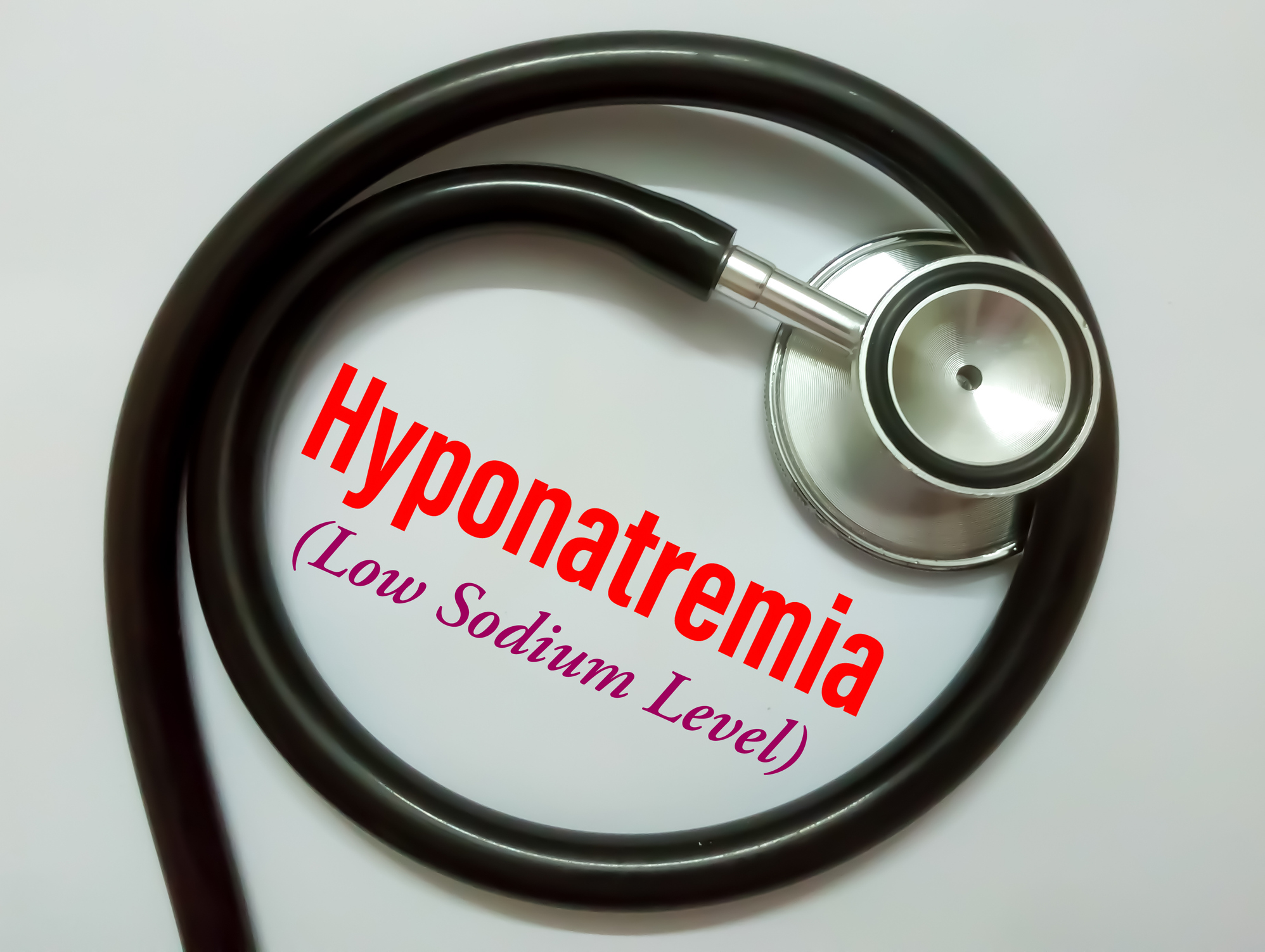 Our bodies need an adequate amount of sodium to help control how much water is in and around our cells. Therefore, extremely high or low levels of sodium in our blood can be harmful to our health.
Our bodies need an adequate amount of sodium to help control how much water is in and around our cells. Therefore, extremely high or low levels of sodium in our blood can be harmful to our health.
Hyponatremia occurs when the concentration of sodium in our blood is abnormally low or when there is too much water in our blood.
Low blood sodium (hyponatremia) can cause water levels in the body to rise and cells to swell, potentially leading to serious health problems.
Hyponatremia can be caused by several factors including:
- Taking certain medications
- Drinking too much water
- Heart failure
- Kidney or liver disease
- Hormonal changes
- Syndrome of inappropriate secretion of antidiuretic hormone
- Chronic or severe vomiting or diarrhea
- Taking the illicit drug Ecstasy
Signs and symptoms of hyponatremia may include:
- Muscle cramps or weakness
- Nausea and vomiting
- Confusion
- Irritability and restlessness
- Headache
- Fatigue
- Seizures
- Coma
Some individuals are more at risk than others for developing hyponatremia. Individuals at higher risk are:
- Those who drink too much water while participating in intensive physical activities such as marathons
- Older adults
- Those who are taking certain diuretics, pain medications or anti-depressants
- Those who have medical conditions such as kidney disease, heart failure or other conditions that can contribute to hyponatremia
Hyponatremia may be prevented by:
- Drinking water in moderation
- Paying attention to the signs and symptoms of low sodium in the body
- Receiving timely treatment for medical conditions that may contribute to low sodium levels
- Avoiding the consumption of the illicit drug Ecstasy
Anyone who develops symptoms of hyponatremia should seek medical attention right away. Treatment for mild cases may include your doctor recommending a change in medication or reducing water intake. In moderate to severe cases, medications may be used to correct blood sodium levels or sodium may be replaced intravenously.
All content of this newsletter is intended for general information purposes only and is not intended or implied to be a substitute for professional medical advice, diagnosis or treatment. Please consult a medical professional before adopting any of the suggestions on this page. You must never disregard professional medical advice or delay seeking medical treatment based upon any content of this newsletter. PROMPTLY CONSULT YOUR PHYSICIAN OR CALL 911 IF YOU BELIEVE YOU HAVE A MEDICAL EMERGENCY.
